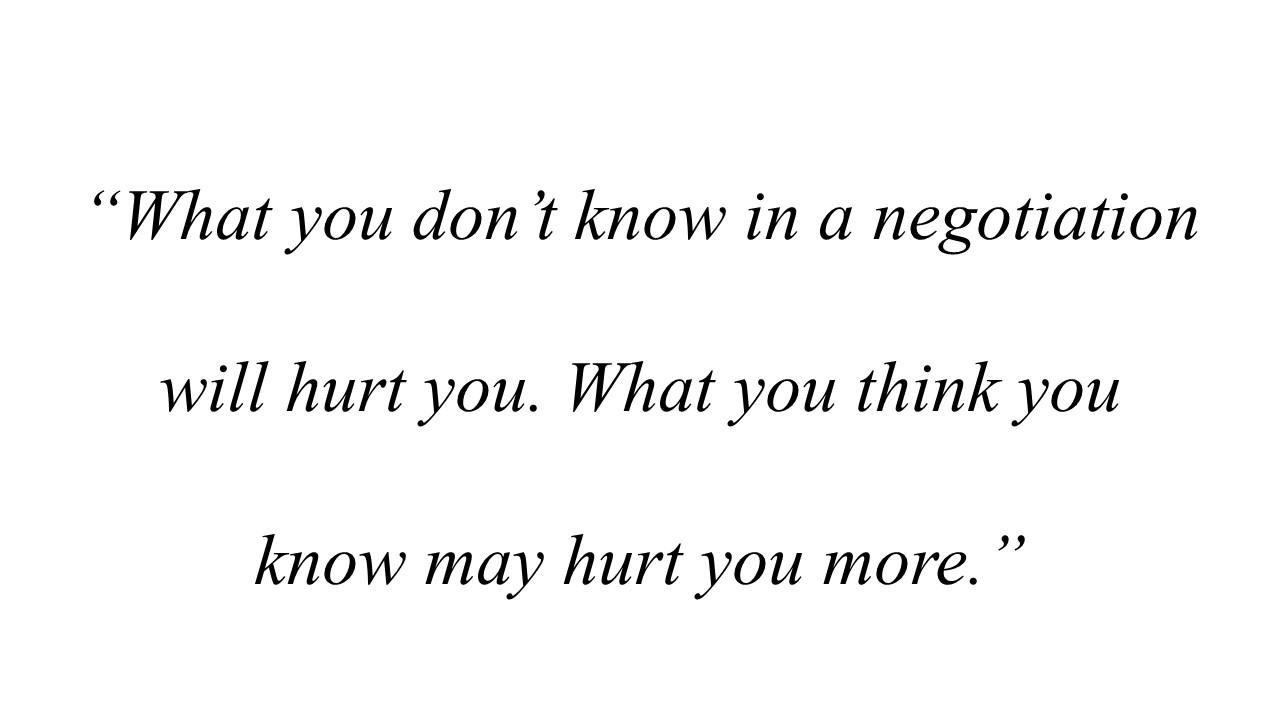What you don't know in a negotiation will hurt you.
Information is power in a negotiation. The more we know about what the other party wants, the better job we can do to help them get it. That last sentence may sound counterintuitive, but it is not. The more we know about the other party's values, the more we can inspire them to work with us. When we know what the other party wants, we can align our case so that both parties get what they want. However, to work, we have to know what they want and value. The key word there is know. But how do we know? We often think we know, but we don't.
Many salespeople concentrate on developing questions to ask our customers. That is good. We invest significant time in our programs, creating questions for our customers. The questions we develop to ask ourselves may even be more critical.
While it's true that what we don't know in a negotiation will hurt us, what hurts us more is what we think we know is wrong.
What we think we know that is not right is the basis of all assumptions. Assumptions kill deals. An assumption is anything believed to be true without proof or evidence. The problem most of us have is identifying our assumptions. We have to recognize our assumptions before we can challenge them. The only way to do that is to ask ourselves better questions. So, here are some things you can do to challenge your assumptions.
- Acknowledge they happen.
- Get informed and be observant.
- Ask yourself how do you know this. Who told you? Are they credible?
- Be thorough.
- Identify them. Ask ourselves what we think we know and how.
- Respond, don't react.
- Don't rely on information from just one person. Ask around.
- Ask questions of others to confirm what we think we know.
- Listen with an open mind.
- Be emotionally intelligent. Thoughts and feelings are different things.
- Reflect on what we think and why.
- Question everything.
Another way to identify assumptions is to listen to how you talk to yourself or others. If you catch yourself saying any of the following phrases, you are assuming. Challenge these statements.
- I think
- I believe
- I suppose
- I would imagine
- I would say
So remember, what you don't know in a negotiation will hurt you, but what you think you know in a negotiation may hurt more.

